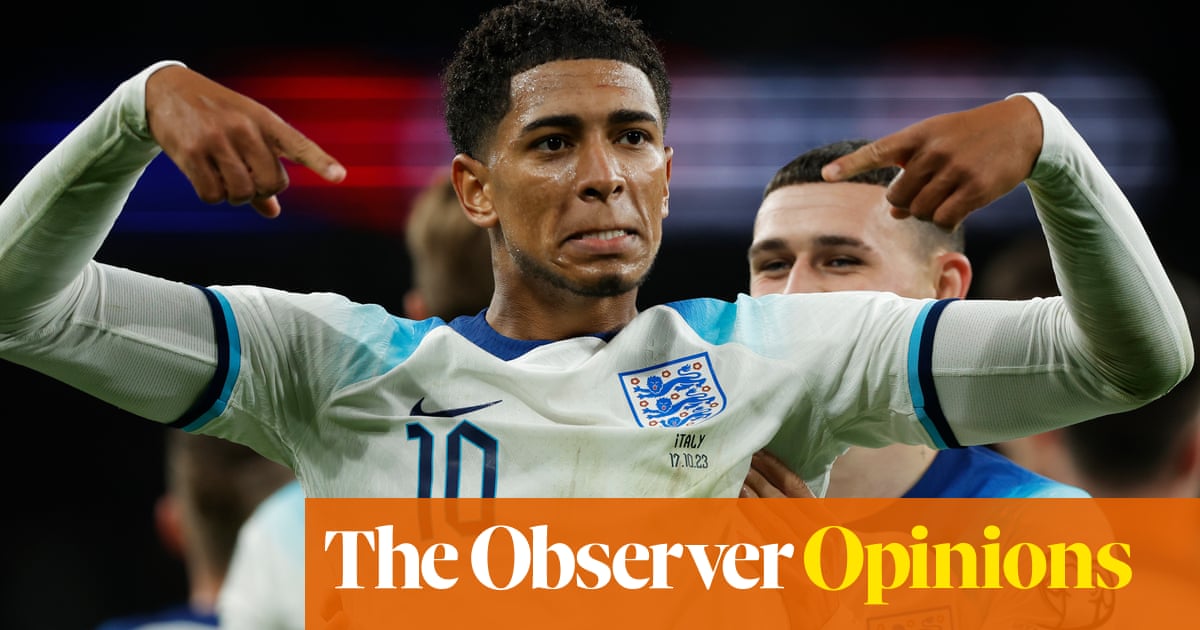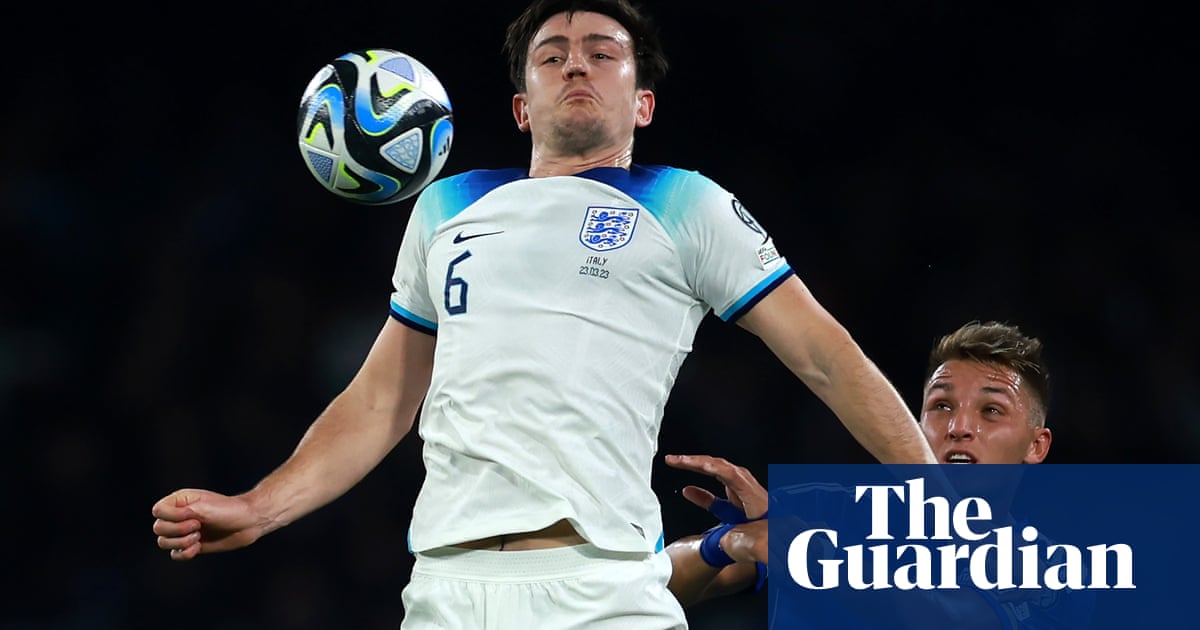
There’s nothing like failure to make you appreciate success. As England slunk out of the Cricket World Cup there was something almost comforting about the return to the not so very distant days when they seemed to be playing a different, tamer sport to the rest of the world, when the only hope of success was to happen upon, as Adam Hollioake’s side did in Sharjah in 1997, some previously unanticipated formula that was perfect for that time in that place.
Then suddenly something clicked, England started posting scores of 350+ as standard and began beating the best sides in the world. Just as the thought began to crystallise that in a World Cup on home soil they might not actually just be genuine contenders but perhaps even favourites, an astonishing generational talent became available to them in Jofra Archer.
The recent story of international football is similar. After years of befuddlement in the foothills, praying that everything might almost accidentally fall into place at a tournament, England suddenly have reserves of elite players and have started hammering lesser teams and competing with and beating top sides more often than ever used to be the case. And into an improving team growing in confidence has stepped a young player who, on form, is arguably the best in the world at the moment: Jude Bellingham.
There are, of course, a number of caveats here. Football is not cricket; there are more elite sides and surprise results happen more often. There will be those who dispute whether England really have started beating decent sides semi-regularly: the claim that they lose to the first good team they face has become a truism.
Like most truisms, it’s not without truth, but it ignores the fact that England beat Croatia, Germany and Denmark at the last Euros, comfortably overcame Senegal, the African champions, at the World Cup, and have twice beaten Italy in these Euro 2024 qualifiers. The logic becomes self-fulfilling: if England beat them, they can’t be good – and so England are destined always to lose to the first good side they play. Injuries and form can change but England stand just behind France as the second-best side in Europe and then there’s a gap to Portugal, Spain and the rest.
Which does not mean France or England will necessarily win the Euros. That’s not how football works. Of the 10 Euros and World Cups played over the past 20 years, only three – Spain in 2010 and 2012, France in 2018 – have been won by a team that was obviously the best there. One – Greece in 2004 – was won by a real outsider. The other six can probably be split into two groups: the fancied teams who found a new level during the tournament – Spain in 2008, Germany in 2014, Argentina in 2022 – and the decent sides that had a little luck and performed above themselves to outlast more favoured teams – Italy in 2006 and 2021, Portugal in 2016.
Yet even the very best of those sides had anxious moments. In 2010 Spain lost to Switzerland and were fortunate against Paraguay. In 2012 they were uninspired in the group and needed penalties to beat Portugal in the semi-final. Argentina lost to Saudi Arabia and required penalties against both the Netherlands and France.
At the 2019 Cricket World Cup, England lost to Pakistan, Sri Lanka and Australia in the group and then won the final against New Zealand only in a super over after the most fraught of chases. No side ever wins a major tournament without at least some good fortune and a couple of moments when great players have to produce something extraordinary under pressure. There are no simple formulas.
It was perhaps slightly different a couple of decades ago, with the regular and justified calls for root-and-branch reform of youth development. The Premier League’s Elite Player Performance Plan (EPPP) and the England DNA programme have answered that. England is producing far greater quantities of technically gifted young players than it ever did.
Now England’s main problem seems to be a tightening up in the closing stages, the pressure of not having won a tournament for so long inhibiting them when a trophy comes within reach. Against Croatia in 2018 and Italy in 2021, England let advantageous situations slip, while Harry Kane’s penalty miss extinguished a great opportunity against France.
The panaceas proposed after defeats these days always seem jejune. If only Player X had played or Player Y had not. If only England had been unleashed. But elite modern teams are never unleashed. Each of those 10 previous champions’ triumphs was based fundamentally on defensive solidity, whether that was achieved through sitting deep with screening midfielders or the maintenance of possession.
Which is what makes so much of the criticism of Gareth Southgate so mystifying. Of course, there are things he might have done differently. He has, at times, perhaps been slow to react to make in-game changes. Defeat to Italy at the last Euros, in particular, feels like an opportunity missed. Perhaps at times he feels over-loyal to certain players but equally it may be that is a consequence of the attempt to generate a club spirit, a core that will be changed not on a whim or a blip in form but only when there is a genuine belief the replacement will be a long-term upgrade.
But much of the carping feels driven by either utopianism or boredom. The fact is that Southgate has, by far, the best tournament record of any England manager other than Sir Alf Ramsey and that he is responsible for 36% of all the knockout games they have ever won in major tournaments. The draw in Ukraine in September prompted a great wringing of hands, but England qualified for the Euros with two games to spare. If we look at the Netherlands’ and Italy’s predicaments, England’s achievement should not be taken for granted.
England may or may not triumph next summer. Form, injury, luck and momentum will all play their parts. There will be moments when the prospect of failure looms. But England will head to Germany as one of the two favourites and, given where they were when Southgate took the job, that represents remarkable progress. They look not like participants who might get lucky, but like potential champions.












